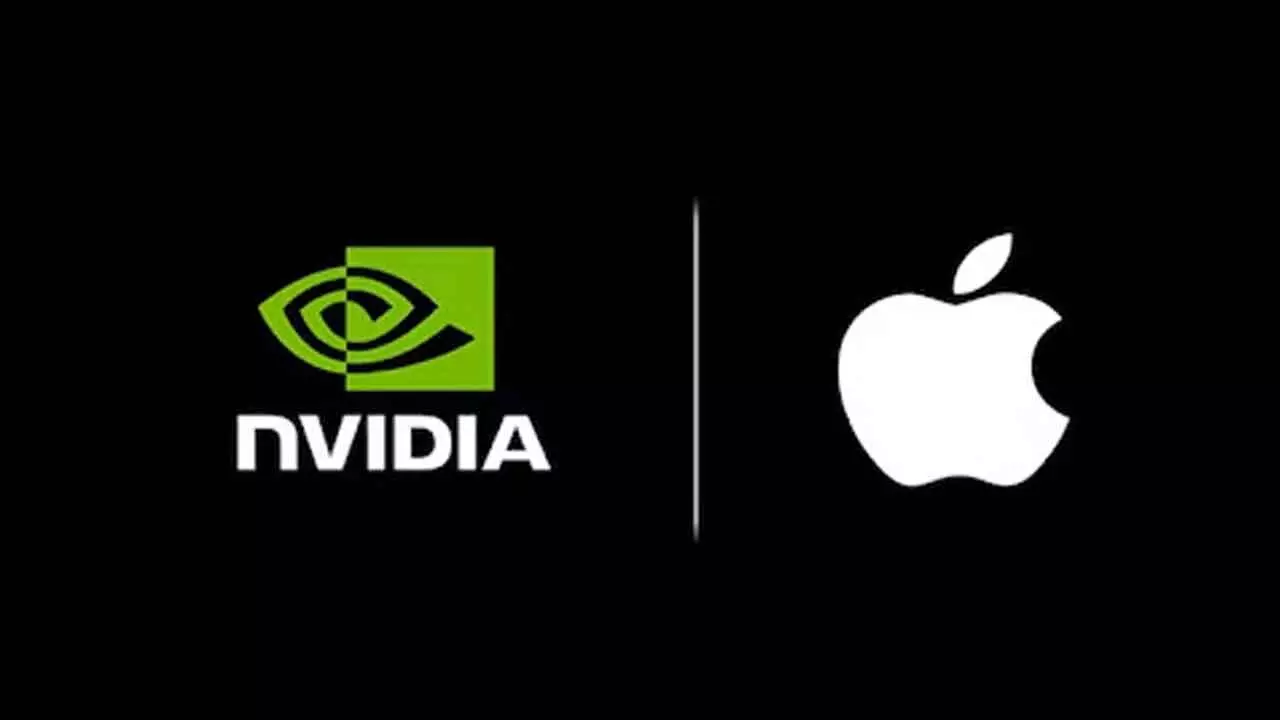Nvidia surpasses Apple to become world’s largest company in AI era
Share :

Graphics chip giant Nvidia has become the world’s largest company by market capitalisation, surpassing Apple, in the artificial intelligence (AI) era.
Nvidia was valued at $3.43 trillion at the close of market late on Tuesday, crossing Apple’s $3.38 trillion market value.
Jensen Huang-led Nvidia for the first time pushed past Apple in June, though only for a day.
The company’s stock rose 2.9 per cent to $139.93, resulting in a market capitalisation of $3.43 trillion. The chipmaker now accounts for 7 per cent of the weight of the S&P 500 Index.
Microsoft currently has a market cap of $3.06 trillion.
In its second quarter ended July 28, Nvidia reported revenue of $30 billion, up 15 per cent from the previous quarter and up 122 per cent from a year ago.
“Hopper demand remains strong, and the anticipation for Blackwell is incredible,” said Huang. “Nvidia achieved record revenues as global data centers are in full throttle to modernise the entire computing stack with accelerated computing and generative AI.”
During the first half of fiscal 2025, the chipmaker returned $15.4 billion to shareholders in the form of shares repurchased and cash dividends. As of the end of the second quarter, the company had $7.5 billion remaining under its share repurchase authorisation.
The company’s outlook for the third quarter of fiscal 2025 predicts revenue to be $32.5 billion, plus or minus 2 per cent.
Nvidia will host a conference call on November 20 to discuss its financial results for the third quarter of fiscal year 2025, which ended October 27.
Ahead of the call, it will provide written commentary on its third-quarter results from its chief financial officer, Colette Kress.
Meanwhile, Huang has asked SK hynix to deliver its next-generation high bandwidth memory (HBM), named HBM4, six months earlier than scheduled amid rising demand for AI computing chips.
Huang's request highlighted the soaring demand for Nvidia's AI accelerators, which heavily rely on HBM chips for data and energy-intensive tasks as AI technology advances beyond text-based models.













